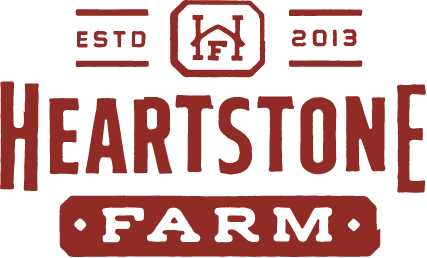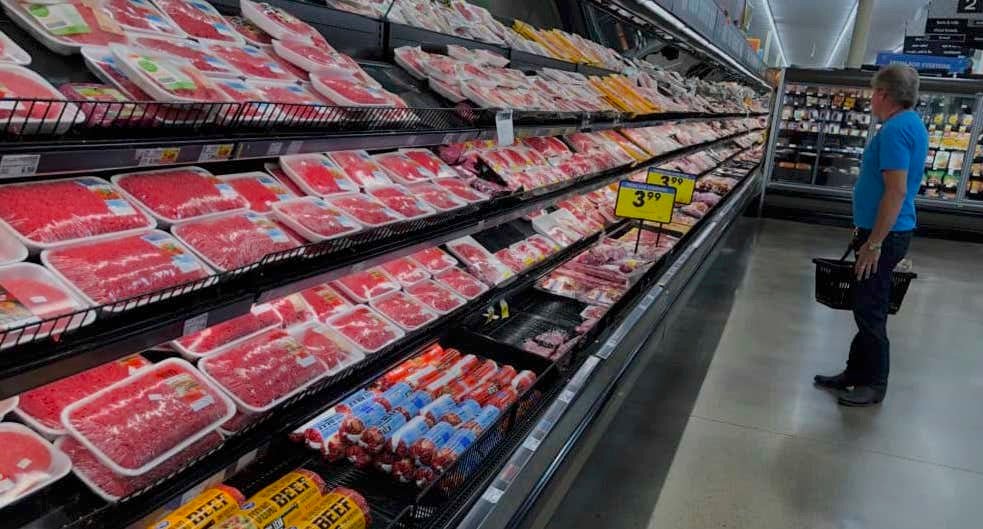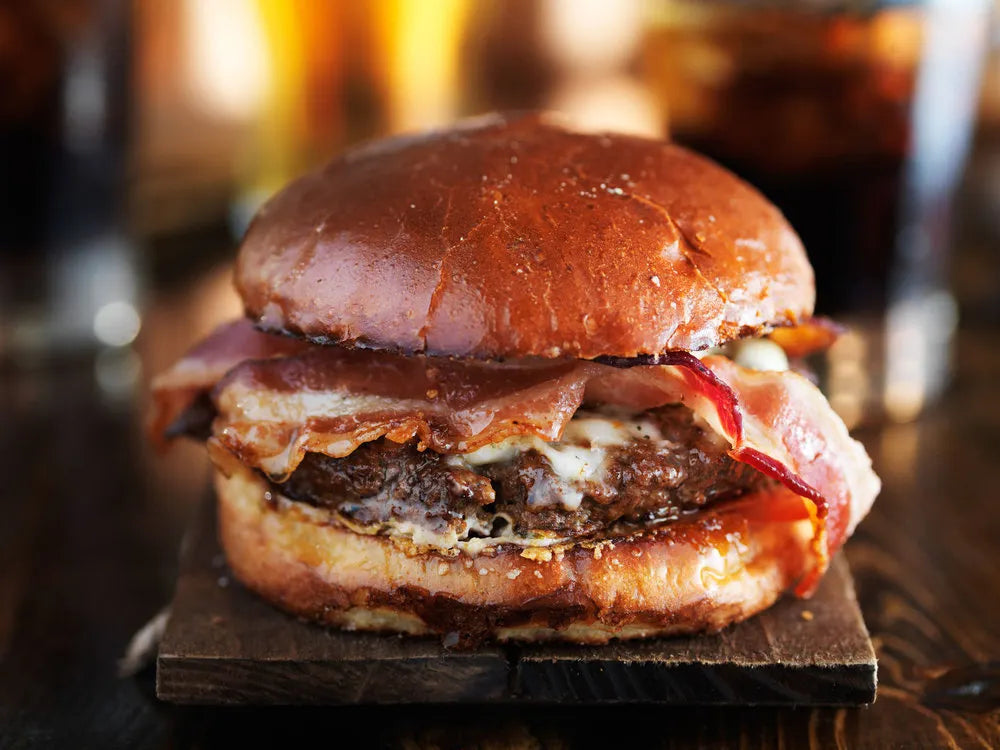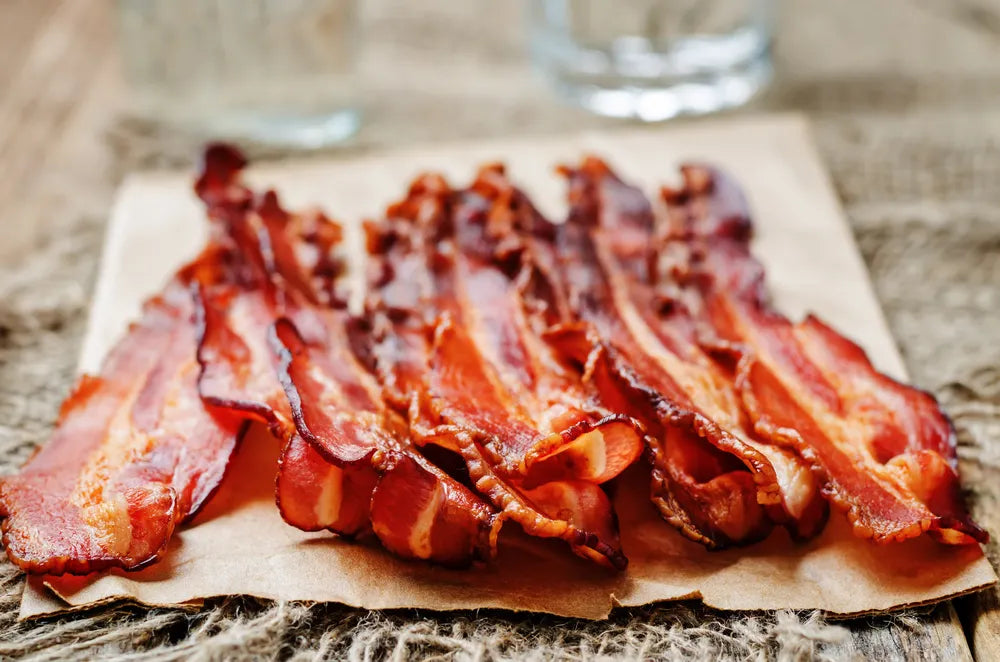What you don’t know about the meat you’re buying at the supermarket (hint: it’s not pretty)
Does this sound familiar?
You’re at the grocery store shopping for dinner. The meat aisle is fully stocked with ground beef, steaks, chicken, pork.
You pick up a shrink-wrapped sirloin steak and it looks good. It’s bright red and that makes you think it looks fresh and fresh is good and you toss it in your cart.
But did you ever stop and question what was in that steak?
- Where did it come from?
- Was the cow mistreated?
- Is there anything in that steak that might not be healthy for you to eat (growth hormones? antibiotics?)?
Here’s your challenge - there’s no way to know the answers to those questions.
It’s not on the label of the steak package.
The grocery store employees don’t have the answers. No Siri or Google search is going to help.
What’s a consumer (you) to do?
We’d like to share a bit about where 99% of the beef sold in supermarkets comes from - and how small family farms (like Heartstone) do it differently.
How fresh is the meat in the supermarket? (And why is it injected with carbon monoxide?)
Let’s start with a small example - how do you know the meat you’re buying is fresh?
Most consumers would say they judge the freshness of meat they buy by its color. Red=fresh, brown=don’t buy it.
But here’s the thing - the meat you buy in the supermarket has frequently been injected with carbon monoxide to give it that fresh, reddish-pink look. The carbon monoxide binds with a pigment in the meat and keeps the colors vibrant and red. It’s a practice that’s banned in places like Japan and Canada, but perfectly legal here.
How long do grocery stores keep meat on the shelves?
Typically, grocery stores keep meat on the shelves from 7-14 days. But before it got to the store, it spent 5-7 days being transported from the processor (usually in the Midwest). So “fresh” meat is likely a couple of weeks old by the time you get it home.
Compare that to buying from your local farmer who processed their meat at a local processor where it was flash frozen as soon as it was cut - locking in the flavor and, yes, the freshness.
Where does the meat at supermarkets come from? And why are factory farms something to avoid?
So what else is going on with the beef you buy at the supermarket that you should know about?
Well, 99% of grocery store meat is raised on factory farms. Many of them in the US, but also in places like Australia, Brazil and Uruguay.
(By the way, there’s no way to know which country your meat came from because the USDA a few years ago changed the rules. It’s called “country of origin” labeling, and if the meat is trimmed or cut in a USDA plant it can say “product of USA.”)
Why is that a problem? Well, there are many:
1. Factory farms are unhealthy for the animals
Most likely, you’ve seen a documentary or two on factory-farmed cows (“Food, Inc.”, “Kiss the Ground”). The livestock are confined to small spaces on crowded feedlots, otherwise known as CAFO (confined animal feeding operations). It’s an inhumane life which stresses the animals and increases their susceptibility to disease. (See "Why are CAFOs bad?")

Cows are ruminant animals, meant to eat and digest fibrous materials (mostly grass). On factory farms, they are fed grains which in addition to being difficult to digest, are heavily fertilized with chemicals. Cows are injected with growth hormones to encourage fast weight gain and are fed antibiotics mixed in with their food to prevent disease that may be caused by their diet. This toxic lifestyle and diet makes cows more susceptible to E. coli, salmonella, and ultimately, meat recalls which are becoming more and more common.
2. It’s detrimental to the environment
Feedlots are vast wastelands. Because the animals do not have pasture to graze and the opportunity to move around, their manure does not have the opportunity to be used as beneficial fertilizer and needs to be stored for future use which can release harmful methane gasses. Also, over-tilling farmland for large-scale monoculture operations (corn, soy) required to feed the cows depletes the soil of nutritional value.
The USDA defines soil health as”a living and life-giving natural resource. It is teaming with billions of bacteria, fungi, and other microbes that are the foundation of an elegant symbiotic ecosystem.” In a nutshell, soil health affects human health. Unhealthy soil creates nutrient-poor food.
Today about ⅓ of the world’s agricultural land now suffers from serious topsoil erosion which has compromised the vitamins and minerals that under healthy conditions thrive and make their way into animal and human diets (source: What Your Food Ate”). Chemical fertilizers and pesticides now need to be added to the soil in order for plants to grow on these farms. Those toxic practices affect the food the cows eat and ultimately the nutritional value of the meat we eat.
This didn’t happen overnight. After World War II, big food companies started changing the way we farm with a focus on producing cheaper and more abundant food. But the “price” we have paid is high. Over-tilling the land has depleted the soil of its organic material (leaves, stems, roots) which are necessary to rich, healthy soil that helps plants grow and thrive and provides us with valuable nutrients critical to building a healthy immune system.
Your Choices Make a Difference
What can you do? Become a vegetarian!?!
You don’t have to go that far - there is a better way that you can support with your purchases. Heartstone Farm is proud to be part of the 1% of farmers raising meat the way nature intended - on healthy farms, grass-fed and finished with no antibiotics or MRNA vaccines.
The result?
1. It’s healthy for the animalsCows need space. Room to ruminate, to rest and to relocate to new pasture.

At Heartstone Farm we have 500 beautiful pastoral acres in the center of Maine. We move our herd to a new pasture every day - insuring they have plenty of feed and - on hot days - shade. They have all the room the need and limitless access to pasture and grass. We care about these animals and want them to have a good life.
2. It’s healthy for the environment, nature and the planet
Our cows are following in the footsteps of the wild buffalo. Feeding on pasture, leaving their manure to fertilize, then moving on to enable the soil to regenerate. And our no-till farming practice on the land enables the undisturbed soil to provide a habitat for soil organisms, including beneficial microbes, insects, birds and other small animals.This is called regenerative agriculture or holistic management.
3. It’s healthy for you, tastes clean and more flavorful, and the way forward for a sustainable futureHealth benefits of eating farm-raised grass fed beef include:
- Less saturated fat, more heart-healthy polyunsaturated fats
- Lower ratio of omega-6 to omega- e polyunsaturated fats (may improve cognitive function and reduce the risk of many chronic diseases, such as cardiovascular disease and cancer)
- Higher levels of antioxidants: vitamin E (protect cells from damage due to free radicals) and B-carotene (critical for vision health)
And grass fed meat simply tastes better. The depth of flavor of the meat cannot be matched which stems from a life on pasture, eating grass and diverse plant life..
Choosing to support small farms committed to regenerative farming is your way to say “No” to factory farming that is destroying our planet and the nutritional value of the food you eat and “Yes!” to a sustainable means of feeding America healthy, delicious food. If you are already shopping at Heartstone, we thank you. If you are new to the Heartstone family, welcome to enjoying meat you can feel good about - clean, healthy and delicious.





